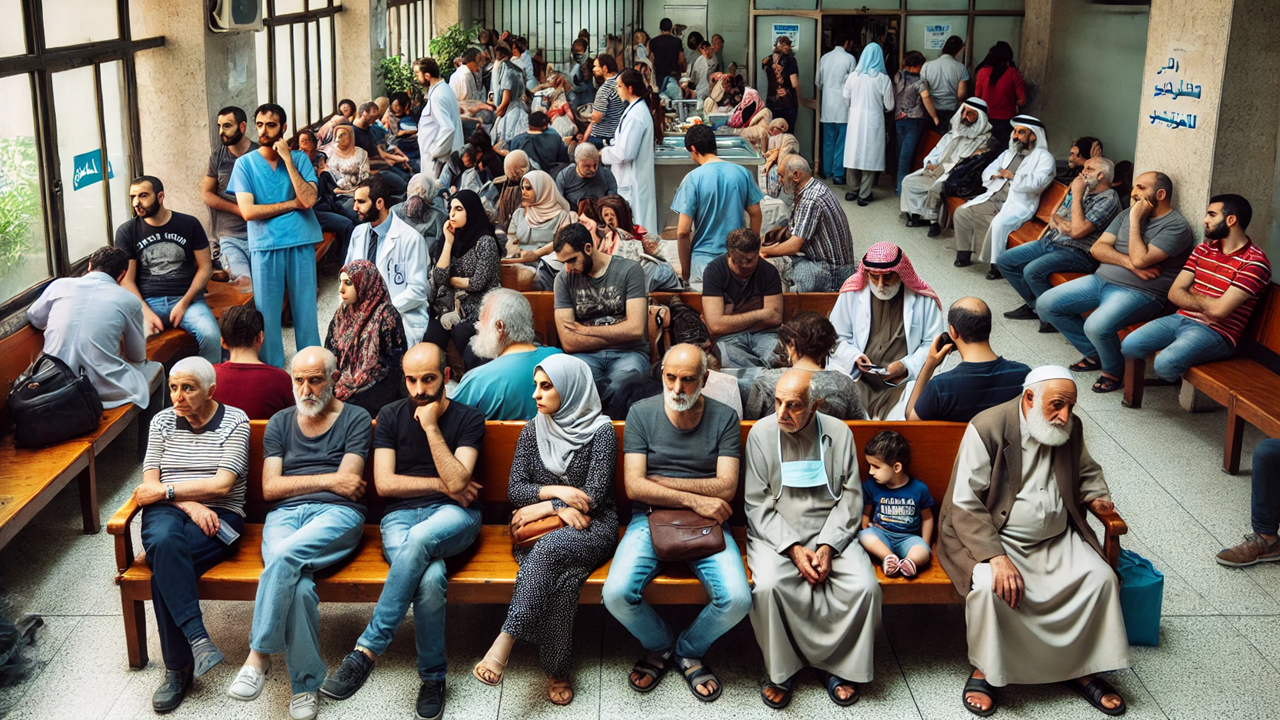Lebanon Faces Alarming Surge in Attacks on Health Care, with Nearly Half Resulting in Fatalities
Attacks on health workers and facilities in Lebanon have resulted in a staggering 47% fatality rate, the highest globally, as the country's health system buckles under conflict.

Since the escalation of hostilities on 7 October 2023, Lebanon has seen a devastating rise in attacks on health care, with 47% of these incidents resulting in the deaths of at least one health worker or patient. As of 21 November 2024, 65 of the 137 attacks on health in Lebanon have proven fatal. This fatality rate is the highest of any active conflict zone worldwide, far surpassing the global average of 13.3%, which includes other areas such as Ukraine, Sudan, and the occupied Palestinian territory (oPt).
In total, 226 people have been killed, and 199 injured in attacks on health in Lebanon during this period, according to the SSA’s figures. By comparison, the occupied Palestinian territory saw 9.6% of attacks result in fatalities, while globally, between 1 January 2024 and 18 November 2024, 730 health workers and patients were killed, with 1,255 others injured in 1,246 registered attacks across 13 countries.
The overwhelming majority of the attacks in Lebanon (68%) have targeted health workers, with significant consequences for both the immediate and long-term healthcare capacity in the country. Health transportation and facilities have also been severely impacted, further exacerbating the health crisis.
Health Care Under Siege: A Humanitarian Law Breach
These alarming statistics are a breach of international humanitarian law, which mandates that health facilities and workers be protected during armed conflict. The WHO’s Representative in Lebanon, Dr. Abdinasir Abubakar, stressed that depriving civilians of access to lifesaving care and directly targeting healthcare personnel violates these essential protections. “It’s unequivocal—depriving civilians of access to care and attacking health providers is a breach of international humanitarian law,” Dr. Abubakar stated, calling for accountability and adherence to international laws governing the protection of health care in conflict zones.
Attacks on health facilities and staff do not only have immediate consequences. The long-term effects are devastating, including missed treatments, a lack of maternal and sexual health services, and undiagnosed diseases that lead to preventable deaths. This is compounded by the destruction of health infrastructure, with 15 of Lebanon's 153 hospitals either shut down or only partially functioning.
In Nabatieh, for example, 40% of hospital bed capacity has been lost. The toll on the health workforce is also immense, as each lost health worker represents not just a tragic death, but the depletion of years of medical training and experience. This creates a dire challenge for Lebanon’s ability to recover and provide essential health services during and after the ongoing conflict.
The Wider Impact on Lebanon’s Health System
The escalating attacks have placed Lebanon’s already fragile health system under extreme duress. Despite being a lower middle-income country with a relatively advanced health system, Lebanon’s medical infrastructure has been increasingly strained by recent crises, including the ongoing conflict, a financial collapse, and the aftermath of the 2020 Beirut explosion. Now, with the health workforce decimated and vital facilities destroyed, Lebanon's ability to care for its population is significantly impaired.
“The greater the blow to the health workforce, the harder it is for a country to recover, not only from the current crisis but also in the long-term,” said WHO Regional Director for the Eastern Mediterranean Dr. Hanan Balkhy. “The death of health workers is a loss of crucial resources and a devastating blow to a nation already facing multiple challenges.”
The global community continues to call for greater protection of health care in conflict zones, and the need for increased accountability for those responsible for targeting health services is becoming ever more urgent.
International Response Needed to Prevent Further Loss
Dr. Balkhy concluded, “These attacks not only cripple the health system in Lebanon but cause long-lasting damage that will affect generations to come. The international community must act to ensure these violations stop and that those responsible face consequences.”
The WHO and other humanitarian organizations are calling on all parties to abide by international law and protect civilians, including health workers and patients, from the devastating impacts of conflict. As Lebanon faces its most critical health crisis in years, the call for international solidarity and action grows ever more urgent.
- READ MORE ON:
- Lebanon
- Dr. Abdinasir Abubakar










